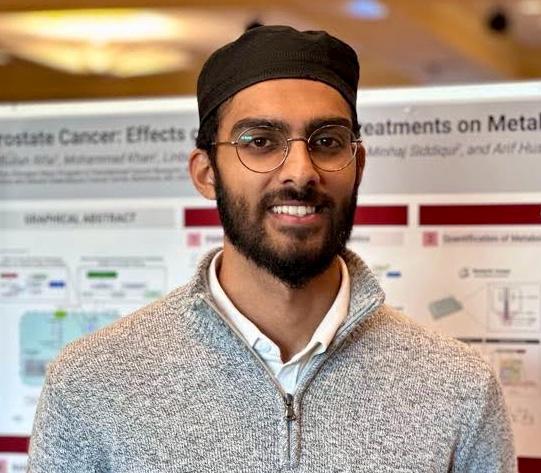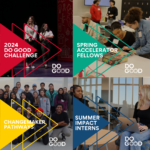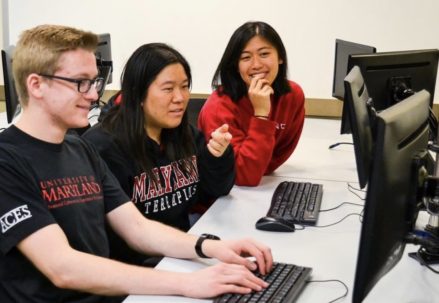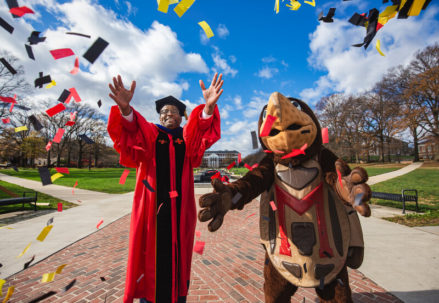Safiullah Rifai ’23 is a graduating senior in the Integrated Life Sciences (ILS) program majoring in math, biology and computer science. He has worked as a research associate at the National Cancer Institute and the National Institute of Standards and Technology (NIST), among other research experiences. We asked him what inspired him to pursue such interdisciplinary studies, what motivates him in his research, and what he has planned after graduation this fall.
What inspired you to pursue such a diverse range of majors?
I started my journey with math at Montgomery College and realized its importance in machine learning at my first internship at NIST. As my interest in machine learning grew, I realized that my interest was in applying machine learning methods to pioneer the sciences, much like what the research teams at NIST were doing. The tools and techniques that are taught in mathematics are commonly utilized for statistical analysis in biology; however, the modern abstraction of math, machine learning, is only beginning to be harnessed. Studying biology through the scope of a mathematician and computer scientist makes me believe that the possibilities are endless.
Can you share what motivates you in your studies?
My motivation to study stems from an urge to pursue translational research. A prostate cancer diagnosis of a family friend motivated me to take the Biology of Cancer and Endocrinology classes here at Maryland. Witnessing the debilitating pain experienced by someone who is like my uncle pushed me to take action, to utilize what I have learned in school and invest it in research.
Can you describe any specific projects or research endeavors you’re currently working on that demonstrate the interdisciplinary nature of your studies?
I am currently working on two major projects, the first being translational research studying prostate cancer metabolomics at UMD’s School of Medicine. This project is particularly meaningful for me because the combination of drugs being studied is actively used in clinical trials, including the treatment plan for our family friend. The second project is here at College Park, and is a project that involves using unsupervised machine learning methods to predict the homodimerization of a protein involved in cancer metastasis. The project is in collaboration with researchers at UVA, who are working on the wet lab component. This kind of research is particularly challenging because it requires a strong grasp of biochemistry, computer science and mathematics. However, research conducted by non-homogeneous groups, be it in terms of academic background, socioeconomic background or life experiences, yields fruitful discoveries. I hope to join a team that is working on target discovery using machine learning.
How has the ILS program shaped or supported your trajectory at UMD?
Thanks to ILS associate director Dr. Sabrina Kramer’s advice, I stayed at Maryland after finishing my math degree. At the time, I had decided I would pursue software engineering or data analysis work; however, my extra time spent at UMD allowed me to mature and partake in meaningful research experiences both on and off campus. I would advise leveraging the connections with your Honors college advisors, as they have guided many students before you.
What’s next? How do you see your studies complementing each other in your future career?
I wish to pursue an MD/PhD and continue my quest in translational research. Given the current advancements in machine learning models, I have no doubt that many big discoveries will be made in all facets of medicine.
What advice do you have for other students interested in interdisciplinary studies?
Research opportunities are really niche for interdisciplinary studies! Definitely check out the undergraduate research database. Also, a cold email and enthusiasm will take you a long way. Lastly, if you feel like you do not have a “why” or a motivation to pursue medicine or any other field for that matter, get experience in that field.





